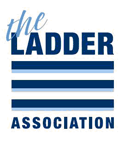WITH immediate effect, the Ladder Association, the trade body representing the ladder industry in the UK and Ireland, has assumed responsibility for delivering the annual Ladder Exchange. Since it was first launched in 2007, it has been responsible for removing over 10,000 broken, bent or damaged ladders from the workplace with the message ‘Don’t let a dodgy ladder shatter your life’.
Actively supported by the Ladder Association and its members who, throughout, have made a firm commitment to work in partnership with HSE and the access industry, the Exchange has also contributed to raising awareness and understanding of how to use ladders and stepladders safely. Under the scheme, suspect ladders can be exchanged, at a discount, at participating partners.
The Ladder Exchange is a great example of how everyone in the health and safety system can share responsibility and work together towards a common goal; namely, reducing falls from height.
Comments Cameron Clow, the new chairman of the Association: “By entrusting the running and management of the Ladder Exchange to the Ladder Association, HSE is acknowledging the increasingly important role that the Association and member organisations of the Access Industry Forum (AIF) now play in advancing safety and best practice in the work at height sector.”
“The Ladder Association is the natural and logical new home for this landmark initiative, which, at launch, created a benchmark in collaboration between the industry trade body, ladder manufacturers and suppliers, and the regulatory body. As an organisation committed to advancing knowledge, skills and safety, we are proud and delighted to have the opportunity of taking over and developing this initiative.”
Paul Cook for HSE says: ”It is widely recognised that trade associations such as the Ladder Association are well placed to promote safety in their industries, given their long established cross-sector membership and contacts. We look forward to the Ladder Association making a real success of the Ladder Exchange as it develops in future years, helping to reduce serious risks that can cost people their livelihoods and their lives.”
The 2012 Ladder Exchange will begin on 1 September and run until 30 November 2012. Full details will be posted on the Ladder Association’s website from 1 May. In the interim period, anyone wishing to register their interest in becoming a participating partner should contact jill.couttie@ladderassociation.org.uk
More Ladder Exchange details will also be available from the Association’s stand in the AIF Information Centre at this year’s Safety & Health Expo, 15-17 May, at the NEC, Birmingham.



























